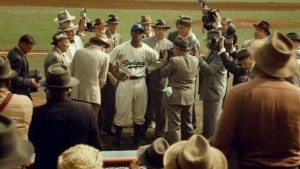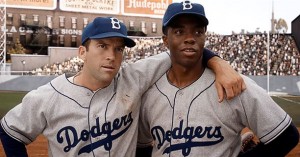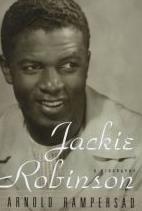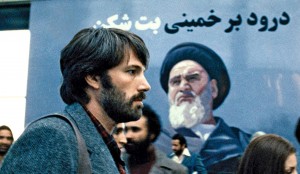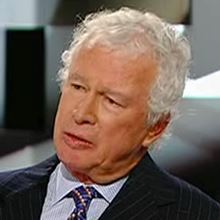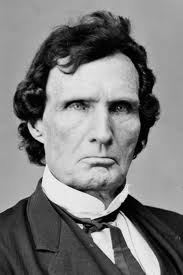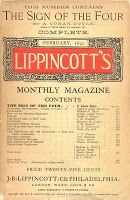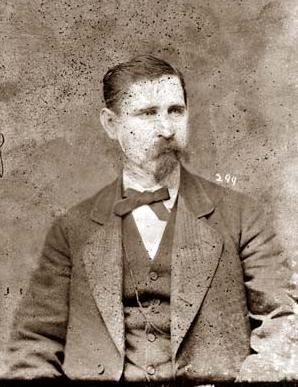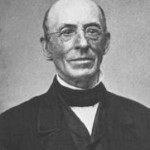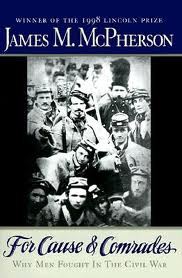You know that movie? The one where there are good guys and there are bad guys. And the bad guys are doing terrible things to society and the good guys are fighting them. And it looks like the good guys will lose, but then in the end they eliminate the bad guys.
Yeah, it’s Star Wars. No, check that. The Avengers. Or maybe I mean Die Hard. Uh, is it Braveheart? Or maybe that classic western, Shane. No, it is every James Bond movie ever made. Wait, of course. It is….The Little Mermaid.
Yeah, OK. The Good Guys vs. Bad Guys story is a very common formula. It’s one of Hollywood’s favorite stories. For that matter, it’s a favorite story in a lot of other places in our culture.
Actually, the movie I have in mind is The Green Berets, with John Wayne (who did a few films, it seems, with this formula).
The film is about the Vietnam War. It came out in 1968, right in the middle of the war. There is a moment early in the movie when a group of reporters receives a history lesson. It’s obvious there is some controversy about the war and the public has been invited to a press conference to hear the soldiers’ side of the story. A reporter named Beckworth asks the Green Berets about the South Vietnamese government, pointing out they do not have free elections or a Constitution, even though a committee was formed to write one.

Sargent Muldoon: soldier, history teacher, philosopher of human nature and Good Guy. Is there anything he cannot do?
The officer with the Green Beret-ish name of Sargent Muldoon then gives everyone a little history lesson to explain why the U.S. military is supporting South Vietnam. (The clip in the link above is of the whole press conference in the film, about four minutes long. The history lesson begins around minute 2:30, if you want to see that part):
“The school I went to Mr. Beckworth, taught us that the thirteen colonies, with proper and educated leadership, all with the same goal in mind, after the Revolutionary War, took from 1776 to 1787, eleven years of peaceful effort, before they came up with a paper that all thirteen colonies would sign, our present Constitution.”
With the history lesson out of the way, the movie then heads off to Vietnam where John Wayne and the good guys fight bravely for the free world. This includes a cute boy whom the film writers decided to give the very un-Vietnamese-ish name of “Hamchunk.” (OK, that last comment has nothing to do with the point of this post. I just have a little mental spasm every time I think about a movie giving the name “Hamchunk” to an Asian boy).
It’s typical John Wayne fare and fun if you like that sort of thing. The theme song is catchy.
As a historian, though, I can’t help myself. Sargent Muldoon has some factual problems. For instance, the United States actually had a constitution before The Constitution — it was called the Articles of Confederation. But truth be told, that doesn’t bother me too much. Hollywood regularly messes up its historical facts and this is the type of goof that most people wouldn’t remember anyway.
The bigger problem I have is this: it’s the Good Guy vs. Bad Guy narrative.
Now, Good Guy vs. Bad Guy stories are often fun and exciting. A lot of interesting plots and stories have been told with this simple formula. And on a certain level, it reflects something that we all should know (and Christians should know): that ultimately, some day, good will triumph over evil in this world.
But it stinks as analysis for how the world is today. And it stinks as a formula for how good will ultimately triumph over evil. And it stinks as analysis of human nature.
(Sorry to be a spoil sport here, for all of you John Wayne fans. Be thankful you are not my kids, who had to endure this sort of thing from me when we watched movies).
The problem is this: I instinctively identify with the Good Guys in these films. After all, I like to think of myself as The Good Guy. The one who is right, and knowledgeable and can handle evil in the world through my own wits, courage and effort.
And that kind of thinking tends to blind me to my own limitations, my failures, and the sin within me. In fact, I like that blindness. Who wants to see their own limitations, failures and sins?
But (spoiler alert) I am not going to overcome the sins of the world by my own effort, even if I join up with a bunch of other Good Guys. Apart from saving the world, it is a problem in dull, ordinary, daily life when I lose sight of my deep need for God’s grace and wisdom and guidance.
OK, we Christians know this. We know these movies are just entertainment.
Do we?

The brief observation in the text to left about advertising is brought to you by Apple’s logo. Have you ever seen it before?
Here is something to consider: isn’t it true that if we hear a story over and over and over again, (without reflection or an alternative story to challenge the dominant story) it is likely to seep into out being, without us realizing it. Shoot, it doesn’t even have to be a story. That’s why advertisers work so hard just to get us to recognize their brand. It works.
Here is an alternative story to the Good Guys vs. Bad Guys story: though all people are good in the sense that they are created by God, all people are also stained by sin and limited in their understanding. The Good News is that God offers us forgiveness and grace and wisdom. But we cannot generate it without God.
But back to the Good Guys vs. Bad Guys story that is so common. The Green Berets is interesting because it consciously tried to make the connection between entertainment and real life. It did not simply situate itself as entertainment. Produced at the height of the controversies over the Vietnam War, it was clearly a statement about how to solve the problem of the war. Trust in our own goodness and toughness and righteousness, and we will defeat the evil of communism.
That story, in so many other forms, seeps deep into the soul of our culture. So I think we ought to think more deeply about the way that human nature is portrayed in the everyday stuff around us.
As it turned out, the Vietnam War was a lot more complicated than The Green Berets made it out to be. Whatever righteousness and wit and courage we Americans had was not enough to shape that conflict the way we wanted it to be shaped. In real life, the Good Guy story did not come true.
The Good Guy/Bad Guy story is not, by any means, just a conservative characteristic. There are liberal versions. For radicals in the 60s, the solution was to work for a revolution to overthrow the bad guys controlling the system. Many leftists in the 60s were sure that revolting against the Establishment would produce a good society. Some thought the North Vietnamese were the Good Guys. That didn’t work, either.
For liberal idealists, the solution was just to believe in the goodness of all human beings, a stance captured in John Lennon’s hit, “Imagine.” The Beatles made some nice music but let me just say that the Christian rocker Larry Norman, in his song “Readers Digest,” gave what I thought was the most succinct critique of this view of human nature: “The Beatles said all you need is love and then they broke up.”
Here, then, is a parting thought that I plan to expand upon later: democracy (and other institutions, like the church, the family, business, education, movies, rock songs etc.) work best when they are built on systems that, to paraphrase James Madison, recognize that humans are not angels.

